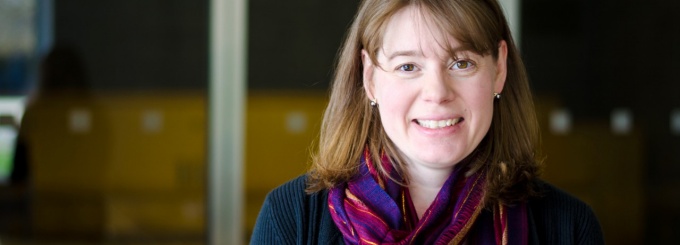Hand-washing Program Evaluation in Kenya

Kelly Kamm details her exploration of data collected for evaluating a program aimed at improving hand-washing among children and families in Kenya.
Kelly Kamm is a research scientist at Michigan Technological University. She conducted the fieldwork below as part of her doctoral program at UB.
According to World Health Organization estimates from 2008, diarrhea and lower respiratory infections are responsible for killing 23% of primary school-aged children worldwide. In addition to the loss of life, children with these infections are often absent from school because of their illness.
Due in part to the support from the UB School of Public Health and Health Professions’ Office of Global Health Initiatives, I was able to conduct a detailed exploration of data collected for an evaluation of a hand-washing program called SOPO. SOPO was developed by UNICEF to improve hand-washing with soap among school children and their families.
In Kenya, the program was piloted in about 200 schools in two western provinces. Trained teams went out to primary schools and promoted the SOPO program with the help of the cartoon ambassador, a friendly green bar of soap. The teams taught kids a catchy song that reminded them when they should wash their hands. The teams urged the schools to maintain hand-washing facilities and promote an environment at school where students reminded and encouraged each other to wash.
Before deciding on scaling up the program to a national level, UNICEF and the Kenyan government wanted to understand the impact of the program in the pilot areas. Did children remember SOPO and did their hand-washing improve in response to the program? Was the SOPO program an efficient use of limited funds available to support hygiene in schools? The scholarship I received from the Office of Global Health Initiatives is helping to support my analysis of data collected in Kenya to help answer these questions.
This experience helped to remind me of the resources I often take for granted. School children in many areas of the world do not have easy access to soap and water. But in the U.S., we are rarely limited because of access. When I attended elementary school, there were shorter sinks for younger grades so that even the smallest children could reach the taps. And soap was always available; soap dispensers were located at each sink and refilled daily. In this technological age, we may be inclined to look for high-tech solutions to health problems, but the greatest impact may come from a low-tech solution, such as figuring out a way to keep soap and water available to schoolchildren in low-resource settings so they can wash their hands.
Visiting the area where data was collected has helped provide invaluable context to the data and results. Moreover, I see firsthand that in-depth evaluation of public health programs is critical for thoughtful use of limited public sector funds.
--Kelly Kamm, PhD '14